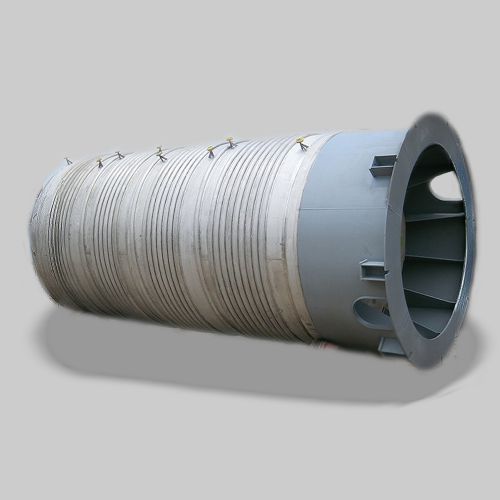An appropriate amount of corrosion inhibitor on the metal surface of the pressure vessel can effectively improve the corrosion level and reduce the corrosion rate. The cost of adding corrosion inhibitors is lower than that of other anti-corrosion processes, and the effect is obvious, especially in the case of controlling chemical corrosion and electrochemical reaction corrosion. Corrosion inhibitors are mainly classified into adsorption type, oxide type, and precipitation type. The adsorption type belongs to an organic substance, which can improve the anti-corrosion level of the metal surface of the pressure vessel; the oxide type itself is an oxidant, and can redox-react with the reducing substance in the reagent. The substance will adhere to the inside and create a protective film that reduces the rate of corrosion.
Select materials according to actual conditions
Selecting the right pressure vessel materials can reduce the corrosion of the vessel from the fountainhead. They should be selected according to the application conditions and various standards. First, on the basis of considering the corrosion resistance of the material, it is also necessary to take into account the high temperature and high pressure resistance of the materials, thereby reducing the probability of physical corrosion;
Second, select materials combined with the actual situation and the type of solvent. For example, the solvent is highly reductive or in a very humid environment, it is necessary to prevent the use of steel pressure storage tank; third, select materials in accordance with the relevant standards. Pay attention to the construction of materials. It is better not to use a material with a large intergranular gap so as to prevent corrosion caused by penetration. Carbon steel is usually selected as the material for producing pressure vessels, and copper, titanium can also be used as casting materials.
Research and development of new types of materials
The manufacturing process of pressure vessels is always improving, and new materials are emerging and utilized. At present, the main raw materials used in various pressure vessels are usually metal materials or alloy materials, and composite materials are used in special components with small structures. Because most metal materials and alloy materials have poor acid and alkali resistance, the development and adaptation of new materials should be highly concerned.
Electrochemical protections
Electrochemical protection is to prevent the corrosion reaction on the metal surface of the pressure vessel, turning it into the cathode and then protecting it. At present, there are mainly two methods. One is externally adding a DC power source, changing the direction of the electrons when the metal material is the anode and turning the pressure vessel to the cathode, preventing it from being corroded, which requires a long-term power supply. The current can be adjusted at any time according to the actual conditions. The other method is sacrificial anode. Put active materials that are more easily oxidized than the surface metal, such as zinc, aluminum or other substances in the pressure vessel.


 English
English Español
Español русский
русский